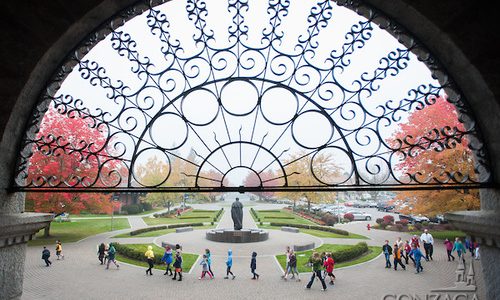January 21, 2018
This year over spring break, Austin Johnson (’18) will be co-leading the Mission: Possible immersion trip to St. Louis. Mission: Possible is a GU student service program with over 100 participants traveling to ten different cities to fulfill Gonzaga’s core themes of simplicity, community, spirituality, and justice. The St. Louis trip will focus not only on the pervasiveness of poverty and the lack of control the homeless experience, but will also expose students to the complex racial history of St. Louis.
As a Sociology and Criminal Justice major, Austin’s studies directly link to his service with the Mission: Possible group, and the two areas of study helped guide Austin to the St. Louis trip, who cites society’s perceptions of those who are homeless and how the law handles them as just two of the reasons why he chose it.
“I think that my biggest concern with homelessness is how often times they are criminalized and dehumanized,” Austin explains of the connection between his studies and the trip. “We as a society have gotten to a point where we are comfortable looking past them as human beings … Going on Mission Possible allows me to continue listening to people’s stories and tie them back to my own work in the Sociology and Criminal Justice field.”
Outside of Mission: Possible, Austin is also a Wolff fellow and has been a member of Campus Kids since his freshman year. As a Spokane native, this mentoring work is especially meaningful for both him and for the local community. He says he got involved because of his own experiences with mentors as he grew up. “I mentor because there are countless youths who are not afforded the same opportunities to succeed and grow as I have been given. I mentor because I want to be someone who can be there as someone who cares deeply and passionately and walk alongside them on their own journeys of personal growth and success.
“More simply put, I mentor because I believe that every kid deserves to have a happy and fulfilled life full of people who love and care about them. As a mentor, I hope to be one of those people.”
Written by Dalton Burnett (’18), edited by Amy Shellenberger
